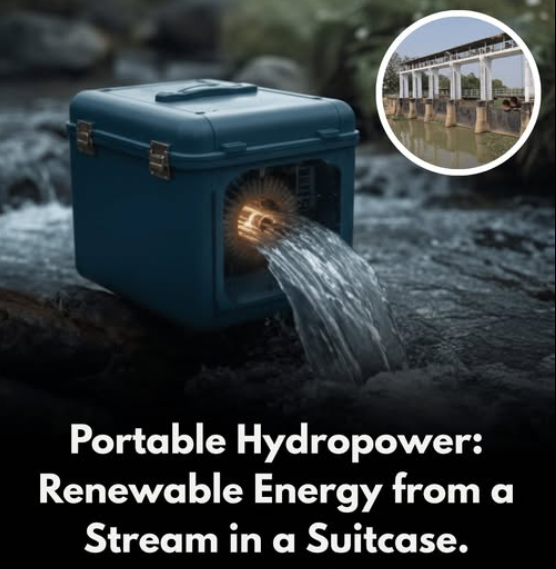5G, the fifth generation of cellular technology, promises a dazzling future of unparalleled speed, near-instantaneous connectivity, and a transformative digital landscape.
Yet, amidst the excitement, a shadow lurks: cybersecurity concerns. With its increased attack surface and complex ecosystem, 5G demands a cautious dance between innovation and security.
The Vulnerability Landscape:
5G’s very strengths – its higher speeds, massive device connectivity, and reliance on software-defined networks – open up new avenues for cyberattacks.
Here are some key concerns:
- Increased Attack Surface: The sheer number of connected devices in a 5G network exponentially expands the potential targets for hackers. From critical infrastructure to personal devices, every point of entry becomes a potential vulnerability.
- Supply Chain Risks: With globalized development and complex hardware and software dependencies, any security breach in a single component can compromise the entire network.
- Software-Defined Vulnerability: 5G relies heavily on software-defined networks, which offer flexibility but also introduce new attack vectors through software vulnerabilities and potential manipulation.
- Privacy Concerns: The vast amount of data generated and transmitted through 5G networks raises concerns about data privacy and the potential for misuse by corporations or governments.
Security Steps on the Digital Highway:
Despite these challenges, proactive measures can mitigate risks and make 5G a secure platform for innovation.
Here are some key strategies:
- Zero-Trust Security: Implementing a zero-trust security model, where every device and user must be verified before access is granted, helps to minimize unauthorized access and data breaches.
- Encryption and Data Security: Robust encryption protocols and data security measures are crucial to protect sensitive information transmitted across the network.
- Continuous Monitoring and Vulnerability Management: Implementing proactive monitoring systems and regularly patching software vulnerabilities remain essential for identifying and addressing threats before they can cause damage.
- International Collaboration: Sharing cybersecurity expertise and best practices across borders is critical to combatting global cyber threats effectively.
Navigating the Road Ahead:
Harnessing the full potential of 5G requires a delicate balance between speed and security.
Recognizing the inherent vulnerabilities and proactively implementing robust security measures will be crucial to create a 5G future that is not only fast and connected but also safe and secure.
This is not a race to the fastest network; it’s a marathon towards a secure and resilient digital landscape. By prioritizing security as we embrace the transformative power of 5G, we can pave the way for a future where innovation thrives without compromising the safety and privacy of the data and lives intertwined in its web.
Remember, cybersecurity is a continuous process, not a one-time fix. As technology evolves, so too must our security measures. By maintaining vigilance and actively addressing emerging threats, we can ensure that 5G’s transformative potential truly unlocks a brighter, safer future for all.
https://www.exaputra.com/2023/12/5g-for-cybersecurity-concerns-balancing.html
Renewable Energy
Renewable Energy Concepts Can’t Violate the Laws of Physics
 In the early days of 2GreenEnergy, my people and I were vigorously engaged in finding solid ideas in cleantech that needed funding in order to move forward.
In the early days of 2GreenEnergy, my people and I were vigorously engaged in finding solid ideas in cleantech that needed funding in order to move forward.
I vividly remember a conversation with a guy in Maryland who was trying to explain the (ostensible) breakthrough that he and his team had made in hydrokinetics. When I was having trouble visualizing what we was talking about, he asked me to “think of it as a river in a box.”
“Oh!” I exclaimed. “You mean you take a box full of standing water, add energy to it get it moving, then extract that energy, leaving you with more energy that you added to it.”
“Exactly.”
I politely explained that the laws of physics, specifically the first and second laws of thermodynamics, make this impossible.
He wasn’t through, however, and insisted that, in his office, his people had constructed a “working model.”
Here’s where my tone descended into something less than 100% polite. I told him that he may think he has a working model, but he’s wrong; if he believes this, he’s ignorant; if he doesn’t, but is conducting this conversation anyway, he’s a fraud.
“But don’t you want to come see it?” he implored.
“No. Not only would not fly across the country to see whatever it is you claim to have built, I wouldn’t walk across the street to a “working model” of something that is theoretically impossible.”
—
I tell this story because the claim made at the upper left is essentially identical. You’re pumping water up out of a stream, and then claiming to extract more energy when the water flows back into the stream.
Of course, social media today is rife with complete crap like this. We’ve devolved to a point where defrauding money out of idiots is rapidly replacing baseball as our national pastime.
Renewable Energy
What Canada Has that the U.S. Doesn’t
 Until recently, I would have moose, maple syrup, and frozen tundra.
Until recently, I would have moose, maple syrup, and frozen tundra.
Now I would say: decency, honesty, and class.
Renewable Energy
Not Sure About Zero Illegals, But . . .
 I’m ready to live in a country with zero hateful morons, if that counts.
I’m ready to live in a country with zero hateful morons, if that counts.
-
Greenhouse Gases7 months ago
Guest post: Why China is still building new coal – and when it might stop
-
Climate Change7 months ago
Guest post: Why China is still building new coal – and when it might stop
-

 Greenhouse Gases2 years ago
Greenhouse Gases2 years ago嘉宾来稿:满足中国增长的用电需求 光伏加储能“比新建煤电更实惠”
-
Climate Change2 years ago
Bill Discounting Climate Change in Florida’s Energy Policy Awaits DeSantis’ Approval
-
Climate Change2 years ago
Spanish-language misinformation on renewable energy spreads online, report shows
-

 Climate Change2 years ago
Climate Change2 years ago嘉宾来稿:满足中国增长的用电需求 光伏加储能“比新建煤电更实惠”
-
Climate Change Videos2 years ago
The toxic gas flares fuelling Nigeria’s climate change – BBC News
-

 Carbon Footprint2 years ago
Carbon Footprint2 years agoUS SEC’s Climate Disclosure Rules Spur Renewed Interest in Carbon Credits




